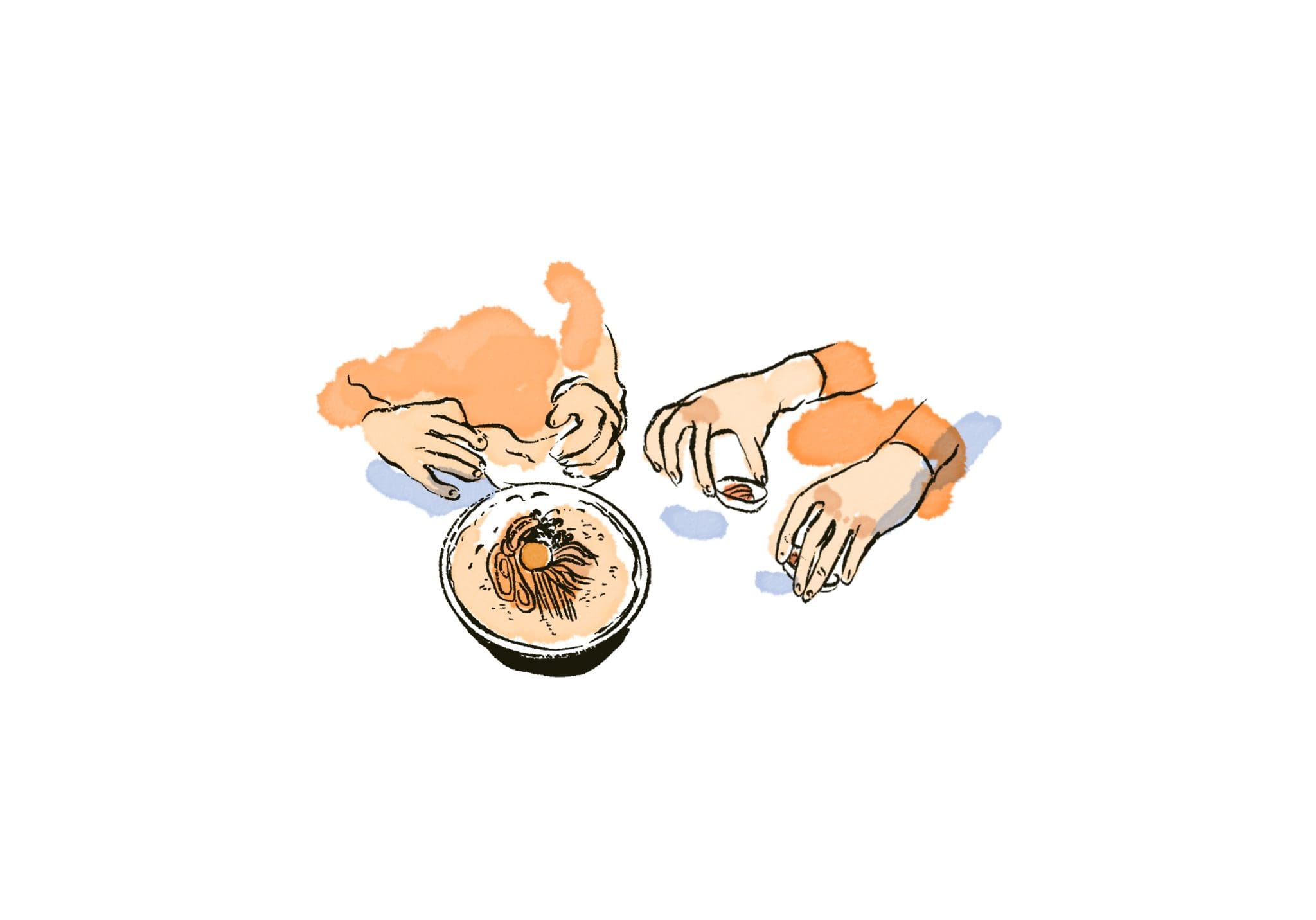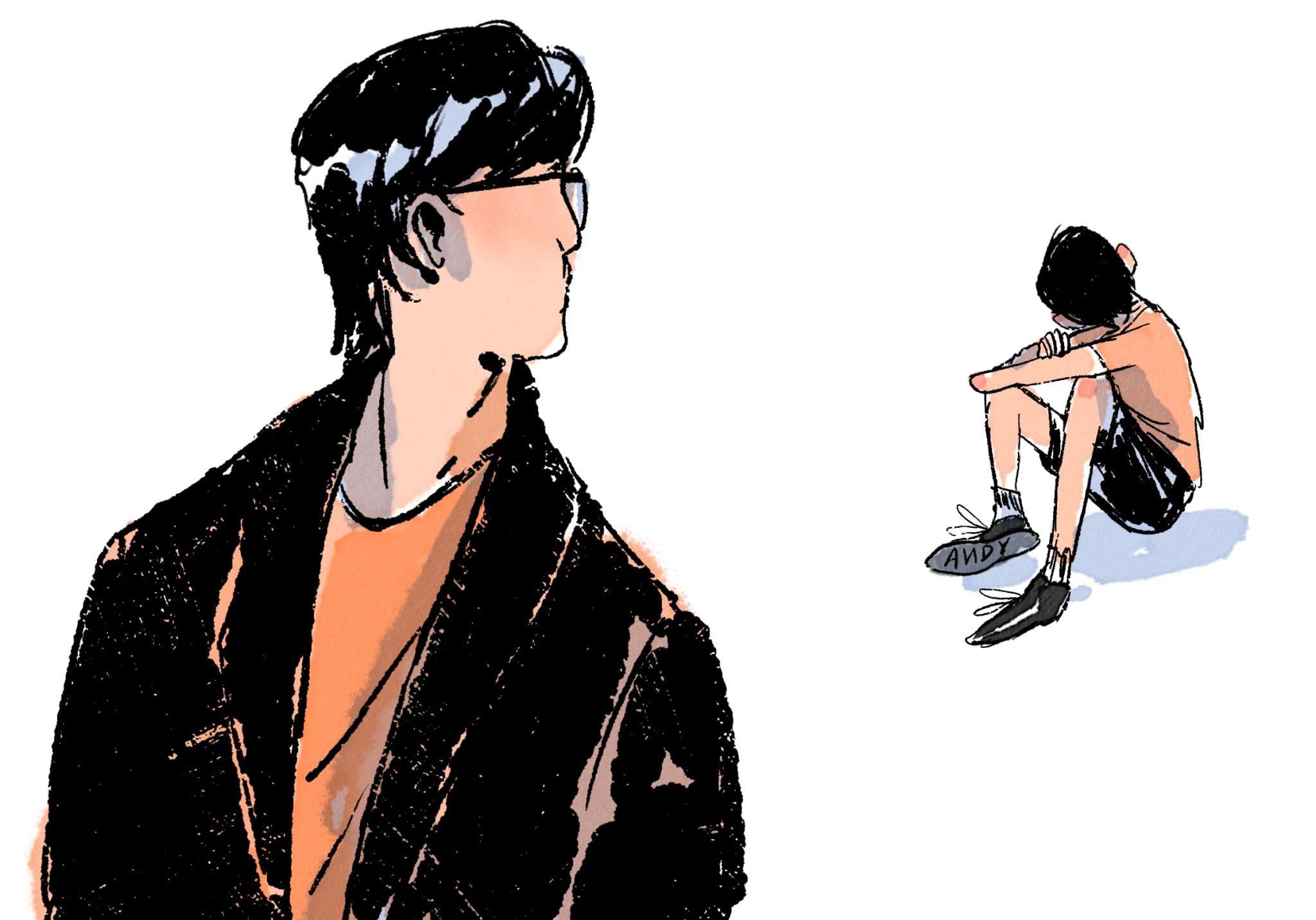For as long as I can remember, Andy has been my name. Despite this, when somebody calls for me, I feel a strange sense of separation with it — as if that person is not me. Though I suspect that this feeling stems from the anxiety of being perceived, everytime I introduce myself as Andy, I deny myself a chance at ever being known.
I was five years old, or thereabouts, when I developed this alibi — I was not different, I was Andy. There was always something so awkward about my name, Ki Joo. It was the way that the syllables would stick, as opposed to the smoothness with which other names would slide off my tongue. Kee—Joo. The teacher’s way down the roll was the way up a rollercoaster for me. Well-intentioned teachers would excuse themselves after calling me “Kai Joo”. I would politely tell them, “My name is Andy” or “Sorry, my name is Andy” or “It’s actually Andy” or “I prefer Andy”. I could never muster up the courage to tell them how to pronounce it. It never even occurred to me.
Instead, I remember the warmth I felt when my friends would correct the teacher for me. It was nice to feel known. The story of how I came to be Andy is quite a nice one to tell. I had a love for Toy Story, and though I shudder at the thought of being “Woody Park” or “Buzz Park”, whenever I tell new friends that I named myself “Andy”, they smile and give me a fond look. The bottom of my Woody figurine had “ANDY” with a reversed “N” on the sole of his left boot.
On Harmony Day, I would try my best to get out of wearing a hanbok, traditional Korean clothes. I felt comfortable wearing orange to match the other kids — there were others who proudly wore their traditional clothes, and it wasn’t ever that I feared being picked on. I wasn’t comfortable in my own skin, and it was easier to wear Andy as my claim to belonging.
———
Being a second generation immigrant feels less like being an orphan, and more like being a child in joint custody moving between two homes. Upon returning from my trip to Korea earlier this year, I realised that Sydney is home. I’m unsure whether Korea itself is home for me, and I am doubtful that it could ever be. Sometimes, the effort to spin my thoughts and feelings into Korean for my parents weighs my tongue down. But after a long day, whenever I’m back at my house in Kellyville, nursing my upset stomach with my mother’s cooking, I know I am home.
In Korea, there is a concept of “jeong” (정/情). The Korean language is rich and subtle, and I often get stuck in the dilemma of translating a Korean word or phrase which captures a feeling far better than English ever could. Hence, jeong is notoriously difficult to pinpoint, but it can be thought of as a universalised love.
Unlike love, jeong is not something which is expressed but more a thing which is held and given to others. My dad describes it as a bond grown and matured over a long period of time, an invisible rope tying people together. There is a common phrase describing married couples as living through “jeong”, not love. It is at once as small as the extra serving of food that the old lady at the restaurant around the corner gives to regulars, and as large as a sense of social responsibility which stretches through everyone. In Korean, an affectionate way of addressing your family is by using possessive pronouns. “Our dad, I love you”, “Our son, I’m so proud of you.” The collective which this implies extends far beyond a single family unit, and transcends even the totality of all Korean people — it is a metaphysical belonging. My mum’s eyes well up and my dad gives me a meek smile whenever I use these terms of endearment.
Perhaps, this is the legacy of a King who created a language for his people. I don’t know a lick about Korean history, but I know that a running theme in our history is resilience. From this elementary understanding, I know that the previous language system was only taught to wealthy nobility, kept away from the common people. Our people.
———
As a kid, my parents would wake me up early on Sunday morning for Korean school before Church — I hated it, and I quit in year two or year three. In the past few years, I’ve fallen in love with my culture again. With the impetus of my undying love for Korean indie band Jannabi (잔나비), I’ve uncovered a newfound fondness for the Korean language and I now read and write poetry in Korean. It’s been fascinating to observe the rapid growth of my culture around the world — I remember the incredulous looks of my family back in Korea when I told them that “Aussies” drink soju (소주). Whilst it validates my identity and makes me proud to be Korean, I am sometimes disheartened that my culture is reduced to shiny pop stars, makeup and barbecue — it makes me sad that Jannabi is relegated to niche indie rock playlists, when they make music which encapsulates Korean soul at its purest. If you feel anything reading this article, please listen to “for lovers who hesitate”.
I love being Korean now, but this doesn’t mean that I’ve become whole. There have been many times where I have been frustrated by the intransigence of Korean patriarchy — the rigidity of prejudice in our cultural framework more generally leaves me tight chested. If I am completely honest, there are times when I am bothered by my parents who speak too loudly on the phone, or times when I feel an improper sense of second hand embarrassment when an overly Korean couple walks by. Everytime I tell people my name, it sticks to my tongue before it leaves my mouth. Kee—Joo. It still feels cumbersome, and sticky, I think it always will. But perhaps that is the glue that keeps me tethered to my culture. The glue which holds me to my family. The glue which keeps me together. 정.






